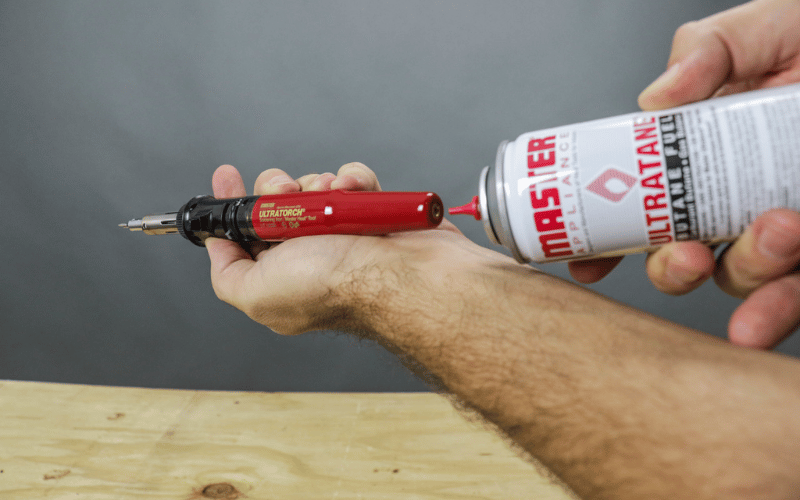Are butane soldering irons any good?

Introduction
Are butane soldering irons any good? In this comprehensive review, we will delve into the features, advantages, and drawbacks of butane-powered soldering irons in comparison to their electric counterparts. Whether you’re a DIY enthusiast or a professional, this article aims to provide valuable insights to help you determine if a butane soldering iron is the right tool for your needs. Let’s explore the various aspects and considerations of butane soldering irons to make an informed decision.
Answer to the Question
Butane soldering irons offer a range of benefits that make them a worthwhile investment for many users. Let’s analyze the advantages in detail and gain a deeper understanding of the value they bring.
Benefits of Butane Soldering Irons
Portability and Mobility
One of the key advantages of butane soldering irons is their portability and mobility. Unlike electric soldering irons that require a constant power source, butane soldering irons are independent of electrical outlets, making them ideal for on-the-go repairs or projects in locations where electricity access is limited or unavailable. This freedom of movement allows users to work on projects in hard-to-reach places without being tethered to a power cord. The ability to operate without the constraints of a power cord significantly expands the range of applications for butane soldering irons, making them a versatile tool for various repair and soldering tasks.
Versatility and Application
Butane soldering irons offer exceptional versatility and application across diverse soldering needs, making them an indispensable tool for professionals and hobbyists. Let’s explore the extensive range of applications:
- Electronics Repair: Butane soldering irons are ideal for delicate and precision soldering tasks commonly found in electronic repairs. Their precise heat control and the availability of various tips ensure efficient soldering on circuit boards, small components, and delicate electronic devices.
- Jewelry Making: The fine control and portability of butane soldering irons make them ideal for crafting intricate jewelry pieces. From soldering delicate chains to intricate metalwork, these soldering irons offer the precision and adaptability required for jewelry making.
- Plumbing: When it comes to plumbing repairs and installations, the versatility of butane soldering irons shines through. Whether it’s joining copper pipes, repairing fixtures, or conducting soldering tasks in tight spaces, these soldering irons provide the needed flexibility and heat control for plumbing work.
- Automotive Repairs: Butane soldering irons are equally valuable in automotive repair and maintenance. From soldering wiring harnesses and electronic components to conducting small metal repairs, these soldering irons offer the flexibility and portability required for automotive work.
Moreover, the ability to adjust the heat output and the availability of a variety of tips make butane soldering irons adaptable to a wide range of soldering applications. Whether it’s a quick repair job or a meticulous crafting project, the versatility of butane soldering irons makes them the go-to tool for professionals and hobbyists seeking a compact and adaptable soldering solution for multiple projects.
Instant Heating
When it comes to the instant heating capability of butane soldering irons, their efficiency and speed are unparalleled. These tools are designed to reach operating temperature within seconds, enabling users to commence soldering work without any significant delay. The immediate application of heat is especially advantageous for on-the-spot repairs and quick tasks, as it eliminates the waiting time typically associated with conventional soldering irons. The rapid heating feature not only saves time but also enhances overall productivity, making butane soldering irons an ideal choice for situations that demand swift and efficient soldering.
- Advanced Heating Technology: Butane soldering irons utilize state-of-the-art heating mechanisms that deliver rapid and uniform temperature rise, ensuring consistent performance during soldering tasks.
- On-Demand Soldering: The instant heating capability empowers users to undertake soldering activities exactly when they need to, without having to wait for the tool to attain the desired temperature.
- Efficiency and Time-Saving: By eliminating the warm-up time, these soldering irons significantly reduce downtime and enable users to focus on the task at hand, thereby improving efficiency.
Drawbacks of Butane Soldering Irons
Refueling Requirement
Refueling Requirement
- Frequency of Refueling: Butane soldering irons require periodic refilling of the fuel to maintain continuous operation. The frequency of refueling depends on the usage and can impact the uninterrupted workflow. For extended or intensive soldering tasks, users need to plan for refueling intervals and ensure a steady supply of butane gas.
- Cost and Effort: The requirement for refueling introduces an additional cost and effort for users. Procuring and refilling butane fuel can be a recurring expense, especially for extended or intensive soldering tasks. Users should factor in these costs and efforts when considering the use of butane soldering irons.
- Impact on Workflow: Refueling can disrupt the workflow, especially during critical or time-sensitive soldering tasks. Users need to manage refueling intervals effectively to maintain an uninterrupted workflow and ensure the availability of a continuous power supply during soldering operations.
- Planning for Refueling: With butane soldering irons, users must plan for refueling intervals based on their usage patterns and project requirements. It is essential to anticipate the need for refueling and ensure a constant supply of butane gas to avoid interruptions during soldering tasks.
Temperature Control
Temperature control is a crucial aspect of soldering, impacting the quality and precision of the soldering process. When using butane soldering irons, there are specific considerations related to temperature control:
- Variability in Temperature: Butane soldering irons may exhibit greater variability in temperature regulation compared to electric counterparts. The absence of a consistent power source can lead to fluctuations in heat levels, requiring users to adapt their technique for optimal results.
- Adjustable Temperature Settings: Some butane soldering irons offer adjustable temperature settings, allowing users to customize the heat output based on the soldering requirements. However, maintaining precise and consistent heat levels can be more challenging compared to electric soldering irons due to the nature of butane fuel.
- Enhanced Skill Requirement: The variability in temperature regulation associated with butane soldering irons may demand a higher level of skill and practice from users. This is particularly relevant for delicate or temperature-sensitive soldering applications, where mastering the control of heat is essential for successful outcomes.
Safety Considerations for Butane Soldering Irons
Flame Safety Features
- Butane soldering irons are equipped with several flame safety features to minimize the risk of accidents and ensure safe operation.
- A common safety feature is the automatic ignition system, which prevents the release of butane gas unless the iron is in use.
- Another important safety aspect is the flame adjustment control, allowing users to regulate the size and intensity of the flame according to specific soldering requirements.
- Many modern butane soldering irons are designed with built-in flame protection mechanisms, such as flame guards and temperature sensors, to reduce the likelihood of fire-related incidents.
It is crucial for users to familiarize themselves with these safety features and understand how to effectively utilize them for secure soldering operations.
Proper Ventilation and Usage
- Proper ventilation is vital when using butane soldering irons to ensure the dissipation of fumes and combustion byproducts.
- Working in well-ventilated spaces reduces the risk of exposure to potentially harmful gases and maintains a safe working environment.
- Additionally, following the manufacturer’s usage instructions and safety recommendations, including storage and handling practices, contributes to the safe and responsible usage of butane soldering irons.
- Proper ventilation has a significant impact on the safety, effectiveness, and durability of butane soldering irons. Inadequate ventilation can lead to the accumulation of fumes and combustion byproducts, increasing the risk of exposure to harmful gases and compromising the quality of workmanship.
- Utilizing ventilation systems, such as fume extractors and filtration units, further enhances the safety measures, ensuring the immediate removal of fumes and maintaining a clean and healthy work environment.
- It is essential to consider the location of the work area when using butane soldering irons. Outdoor environments and well-ventilated indoor spaces are ideal, while confined or poorly ventilated areas should be avoided to minimize the buildup of fumes.
- Understanding the properties of the materials being worked on is crucial. Some materials may produce hazardous gases or byproducts when heated, emphasizing the need for adequate ventilation and precautionary measures.
Proper ventilation plays a critical role in ensuring the safe and effective use of butane soldering irons, safeguarding both the user’s well-being and the quality of work.
Conclusion
In conclusion, butane soldering irons offer distinct advantages in terms of portability, versatility, and rapid heating, making them a suitable choice for various soldering applications. However, it is essential to weigh these benefits against considerations such as refueling requirements, temperature control, and safety precautions. By understanding the benefits and drawbacks, users can make informed decisions regarding the suitability of butane soldering irons for their specific soldering needs. With the right knowledge and precautions, butane soldering irons can be valuable tools for efficient and mobile soldering tasks.
